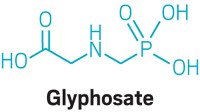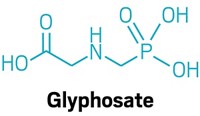Advertisement
Grab your lab coat. Let's get started
Welcome!
Welcome!
Create an account below to get 6 C&EN articles per month, receive newsletters and more - all free.
It seems this is your first time logging in online. Please enter the following information to continue.
As an ACS member you automatically get access to this site. All we need is few more details to create your reading experience.
Not you? Sign in with a different account.
Not you? Sign in with a different account.
ERROR 1
ERROR 1
ERROR 2
ERROR 2
ERROR 2
ERROR 2
ERROR 2
Password and Confirm password must match.
If you have an ACS member number, please enter it here so we can link this account to your membership. (optional)
ERROR 2
ACS values your privacy. By submitting your information, you are gaining access to C&EN and subscribing to our weekly newsletter. We use the information you provide to make your reading experience better, and we will never sell your data to third party members.
Environment
International Agency Deems 2,4-D A Possible Human Carcinogen
Pesticides: Chemical makers dispute the categorization for widely used herbicide
by Britt E. Erickson
June 26, 2015
| A version of this story appeared in
Volume 93, Issue 26
The widely used herbicide 2,4-dichlorophenoxyacetic acid (2,4-D) is “possibly carcinogenic to humans,” concludes the World Health Organization’s International Agency for Research on Cancer (IARC).
IARC released its determination this week, based on “strong evidence that 2,4-D induces oxidative stress,” a condition that can lead to chronic inflammation and ultimately cancer. IARC says there is “inadequate evidence” to fully deem 2,4-D a human carcinogen and “limited evidence” of carcinogenicity in laboratory animals.
Chemical manufacturers are strongly disputing the “possibly” classification, saying it is inconsistent with government findings in nearly 100 countries, including the U.S.
“No herbicide has been more thoroughly studied and no national regulatory body in the world considers 2,4-D a carcinogen,” says John Cuffe, global regulatory sciences and regulatory affairs leader at Dow AgroSciences.
The company won approval late last year to market its Enlist Duo herbicide—a mixture of 2,4-D and glyphosate—in the U.S. Many environmental groups are concerned this will cause use of 2,4-D to skyrocket.
Even before IARC’s evaluation, the Natural Resources Defense Council and other environmental organizations filed lawsuits against the Environmental Protection Agency for approving Enlist Duo. They claim the agency did not adequately study the mixture’s effects on human health and endangered species.





Join the conversation
Contact the reporter
Submit a Letter to the Editor for publication
Engage with us on Twitter